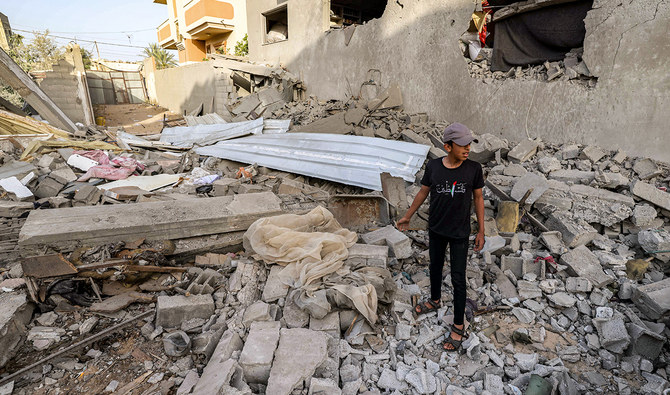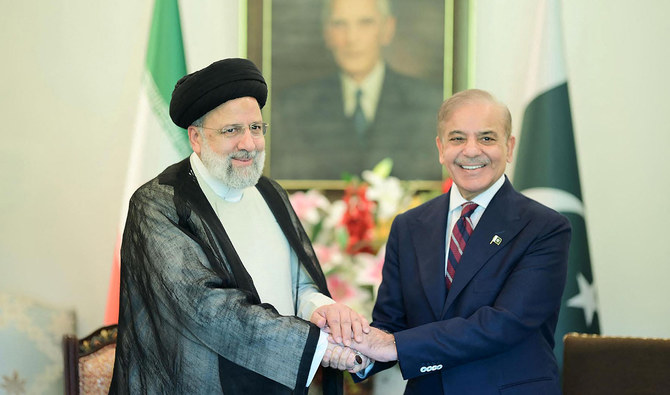ISLAMABAD: Pakistan and Iran urged the United Nations Security Council in a joint statement issued on Wednesday to prevent Israel’s hostile acts toward regional countries, noting that the behavior of Prime Minister Benjamin Netanyahu’s administration was further escalating tensions in the Middle East.
The joint statement was circulated by Pakistan’s foreign ministry after Iranian President Ebrahim Raisi concluded his three-day visit to the South Asian state in which he held several high-level meetings in Islamabad, Lahore and Karachi.
The Iranian president arrived in Pakistan on Monday as the two Muslim neighbors sought to mend ties after unprecedented tit-for-tat military strikes earlier this year. The visit also took place at a time when tensions remain high in the Middle East after Iran launched airstrikes on Israel a week ago and Israel retaliated with its own attack on Friday.
The joint Pakistan-Iran statement condemned Israel’s attack on the Iranian Embassy in Damascus on April 2, calling it an unacceptable violation of the sovereignty of Syria that undermined its stability and security. It also pointed out the attack was a violation of international law and the UN Charter, constituting an illegal act under the Vienna Convention on Diplomatic Relations of 1961.
“Recognizing that the irresponsible act of the Israeli regime forces was a major escalation in an already volatile region, both sides called on the UN Security Council to prevent Israel regime from its adventurism in the region and its illegal acts attacking its neighbours and targeting foreign diplomatic facilities,” the statement noted.
It added the two sides condemned Israel’s aggression against the Palestinian people, along with the inhumane blockade of Gaza, while seeking a just, comprehensive and durable solution to the issue based on the aspirations of the people of Palestine.
Pakistan and Iran agreed to adopt a collaborative approach to confront militant violence and to leverage the existing bilateral institutional mechanisms to effectively combat and counter the threat, while fully upholding the principles of the UN Charter, particularly the principles of sovereignty and territorial integrity of member states.
“Both sides also acknowledged the key role of enhanced economic and commercial opportunities in improving the security environment in the border areas,” the joint statement added.
It mentioned the consensus to fully operationalize barter trade mechanisms between the two countries to facilitate bilateral economic and commercial activities.
Both countries reiterated the importance of cooperation in the energy domain, including trade in electricity, power transmission lines and Iran-Pakistan (IP) gas pipeline project.
“The two leaders agreed to boost their bilateral trade to USD10 billion over the next five years,” the statement said.

















